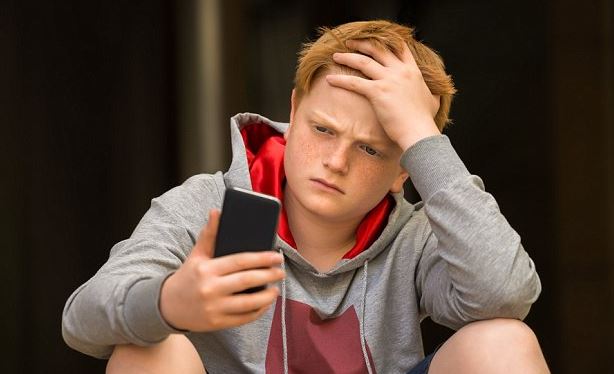London: In the latest Panorama documentary, "Can We Live Without Our Phones?", BBC’s Marianna Spring investigates the ongoing debate surrounding smartphone use and its impact on teenagers. The documentary echoes historical concerns about emerging technologies, comparing today’s smartphone anxieties to past worries about early video games like Manic Miner and Jet Set Willy. Photo Credits: BBC News
Testing Smartphone Dependency
Spring's experiment involved two Birmingham teenagers, habitual late-night TikTok users, who were asked to forgo their smartphones for a week. Provided with basic "brick phones," their initial confusion soon turned into visible frustration. Their behaviour—aimless wandering and even banging on a piano in desperation—highlighted their dependence on their devices, reflecting common teenage traits exacerbated by the absence of smartphones.
A Balanced View on Technology's Impact
Rather than vilifying smartphones, the documentary offers a nuanced perspective. Child psychology experts did not find a direct link between phone use and mental health issues. Instead, academic pressures were identified as a more significant source of anxiety. Additionally, in an era of close parental supervision, smartphones play a crucial role in helping children stay connected with distant friends.
Exploring Social Media’s Dark Side
The documentary also addresses the darker aspects of social media. One participant revealed that his TikTok feed had exposed him to unsettling and violent content. A former TikTok employee highlighted that teenage boys are often exposed to violent and misogynistic material, while teenage girls receive content related to fashion and beauty.

Policy Responses and School Initiatives
In response to these concerns, several regions are testing measures to limit smartphone and social media use. Florida has restricted social media access for children under 14, while France is trialling a smartphone ban in schools for students up to age 15. Similarly, Q3 Academy in Langley, Birmingham, has introduced a policy where students must surrender their phones at the beginning of each school day to minimize disruptions. School headteacher Peter Lee acknowledges the policy may seem severe but believes the benefits outweigh the drawbacks.
A Thoughtful Conclusion
After a week without their phones, the teenagers eagerly reconnected with their digital lives, catching up on missed messages. The documentary avoids extreme conclusions, presenting a balanced view of the complex relationship between teenagers and technology. Lee’s reflection that future generations may view mobile devices with the same scepticism as cigarettes underscores the ongoing debate. Despite the challenges, smartphones also offer valuable benefits for learning and social interaction.
"Can We Live Without Our Phones?" provides an in-depth exploration of this multifaceted issue, acknowledging both the potential drawbacks and benefits of smartphone use among teenagers without falling into sensationalism.